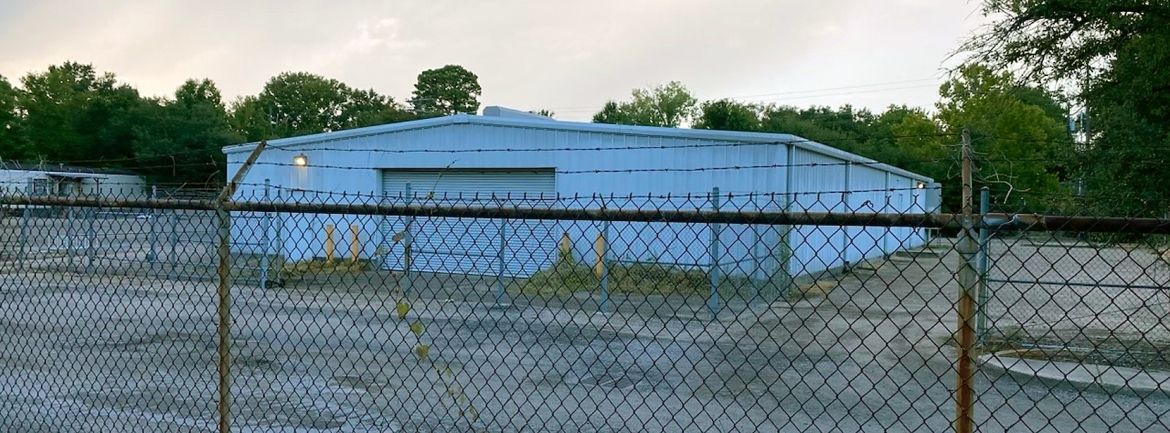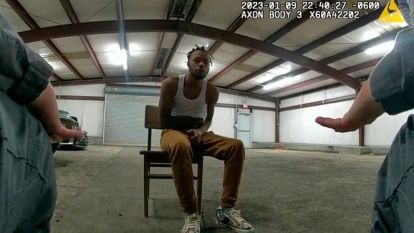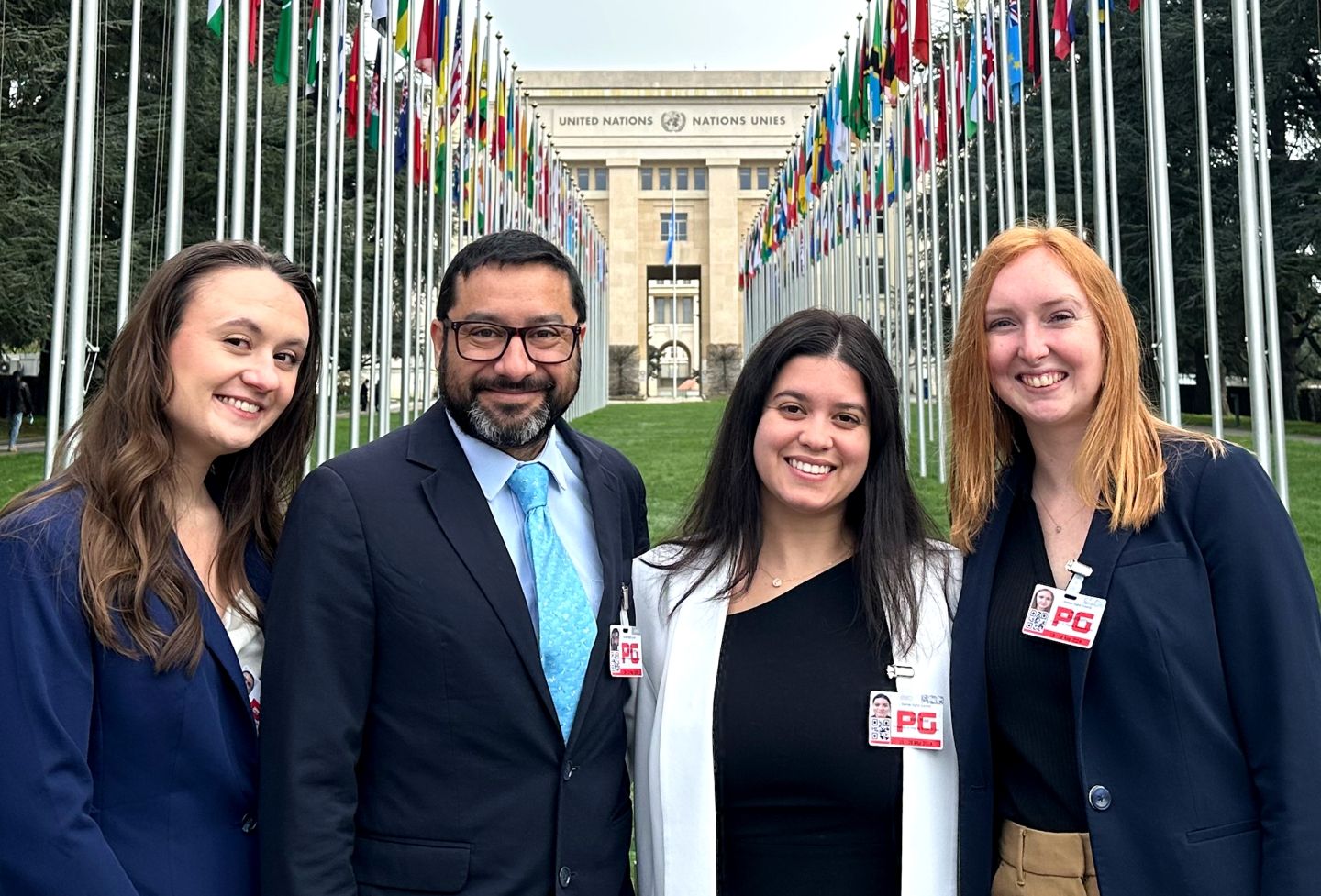Most days of the school year, Professor Thomas Frampton can be found at a podium in a lecture hall, dissecting court cases that explain criminal law and procedure to students at the University of Virginia School of Law.
But late at night, on weekends and during academic breaks, Frampton is researching, writing or flying off to Louisiana in pursuit of civil rights claims in a high-profile police brutality scandal unfolding in Baton Rouge, involving allegations of one or more secret black sites where suspects were routinely stripped and sometimes beaten.
“This is just what I do in my spare time instead of going to therapy or exercising or whatever,” Frampton said. “I’ve had research assistants from my civil rights litigation class working with me, helping me draft complaints and looking over discovery.”

At the center of the “Brave Cave” controversy is a squat pale warehouse and a police department written policy that permits officers to strip search anyone they have a legal basis for stopping and patting down. In constitutional parlance, such a detention would be called a “Terry stop” or a “stop and frisk,” and it is lawful when an officer has reasonable suspicion that the person is armed or has committed or is about to commit a crime, Frampton said. Terry stops are limited to patting down exterior garments.
“Baton Rouge Police Department’s policy is so patently unconstitutional,” said Frampton, a former New Orleans public defender. “This isn’t stop and frisk — it’s stop and strip.”
Frampton and an involved officer both gained a bit of notoriety over the past two years, as Frampton pursued his first two pro bono cases on behalf of plaintiffs who claimed they were unlawfully strip searched roadside during a traffic stop. After settling one of the cases for $35,000, the plaintiff’s family asked Frampton to post the body cam footage of the stop to social media because they were frustrated by the department’s failure to discipline the officer.
“So I put the video up on YouTube and Twitter and it went viral really quickly,” Frampton said. “I went on the ‘CBS Evening News’ to talk about all of this.”
That TV appearance led to two unexpected twists. First, within 24 hours of his cameo, the police department petitioned to jail Frampton for contempt of court for posting the video. Second, Frampton’s phone and email were flooded with messages from more people who said they had been victimized by the officer in the video.

Those calls resulted in at least two more complaints that Frampton has already filed, also on a pro bono basis. On top of that, two public defenders called Frampton about two more cases involving the same officer — those cases, however, involved much more serious charges. Instead of being stripped roadside, these clients were hooded and transported to the “Brave Cave,” a facility named after the police street crimes unit, Baton Rouge Area Violence Elimination.
One client, 21-year-old Jeremy Lee, was so badly beaten at the Brave Cave in January that the local jail wouldn’t accept him into custody until he received treatment for his broken ribs and other injuries, Frampton said. Another, Ternell Brown, a Baton Rouge grandmother, claims she was stopped in June by Baton Rouge patrol officers while she was in a car with her husband. Because she was carrying two different types of prescription pills in the same container, both of which she lawfully possessed, officers took her to the warehouse and checked her vagina and rectum for contraband. She was detained for two hours and then let go with no charges.
Frampton agreed to work with the two public defenders, Ryan Thompson and Jessica Hawkins, on their cases.
“We learned very quickly that there are a lot of people who have been taken to this warehouse,” Frampton said. “It’s not clear that everyone gets beaten up there, but everyone gets strip searched, which is totally unconstitutional.”
Since the first complaint was filed in August, the city’s mayor has ordered the facility closed, the police department has disbanded its street crimes unit and five officers, including the officer at the center of the allegations and his father (the deputy chief), have been arrested. FBI officials said the agency has opened an investigation.
Frampton’s pursuit of justice can be time-consuming. At times, he works on just a few hours of sleep. The day of this interview, he had flown out of Baton Rouge on Monday night, arrived in Charlottesville at 3 a.m. Tuesday and taught class at 2 p.m.
His student research assistants — and his wife, Professor Kelly Orians, a fellow defense lawyer who runs the Decarceration and Community Reentry Clinic at the Law School — help balance the workload.
“Students have helped me research and draft complaints, look over [evidence obtained from] discovery and review body cam footage, basically piecing together this story,” Frampton said.
Chase Gunter ’23 graduated in May after helping build two cases, including Jeremy Lee’s, which has garnered coverage from CNN and The New York Times. Gunter now works full-time with the Richmond Public Defender’s Office.
Gunter worked as a journalist for five years between graduating from UVA as an undergraduate and enrolling in law school. While in college, his views on race and justice were shaped by the killings of Trayvon Martin, Michael Brown, Tamir Rice and others.
“I wanted to go into journalism to shine a light on this kind of thing,” Gunter said. “But I felt like I bumped up against journalism’s limitations, and it ultimately led me to want to go to law school. So I jumped at the chance to work on a police misconduct case with a professor who was a true mentor to me.”
The damage is still being revealed and tallied in Baton Rouge, and it’s unclear how many more claims will surface. Although this level of alleged misconduct is rare, Frampton said, he compared the allegations to a situation in Chicago where a high-ranking commander, Jon Burge, was found to have tortured suspects for nearly two decades.
“Burge went to jail, but the city is still dealing with the aftermath decades later,” Frampton said.
Frampton anticipates filing many more federal civil rights lawsuits related to the “torture warehouse,” and noted that hundreds of established criminal convictions could be compromised if the same officers were involved, or if the defendants were processed through the warehouse.
“It’s going to take years to unravel all the damage that’s been done here,” Frampton said. “Whether that’s from confessions extracted through torture or the failure to provide Brady evidence to the defense — that’s evidence that would be potentially exculpatory because, in this case, the officers interrogating them had a history of wrongdoing.”
In January 2022, a federal court blocked Baton Rouge’s seven-month effort to jail Frampton for posting the video of his underage client being illegally strip searched. (The department itself had provided the video with no restrictions on its use.) Thanks to a “crack legal team,” Frampton was never arrested, never booked and never served a day of the six-month sentence that a conviction could have carried.
The experience was nonetheless both “a bit scary” and “really eye-opening,” Frampton said. “I mean, if they were willing to come after a wealthy, white, out-of-state law professor for using my constitutional rights to highlight something so blatantly unconstitutional — it just gives you a sense of how callously they disregard the rights of the people who are more often on the receiving end of this kind of stuff.”
Despite the dramatic twists and his hectic schedule, Frampton expressed gratitude for the opportunity to serve.
“This is what I want to be doing, and I’m glad I’m able to do it,” Frampton said. “I feel really supported here at UVA to be able to write and publish my articles and also have the freedom to take on pro bono cases and to do other projects, which I think makes my teaching better by connecting what we’re talking about in the classroom to the real world in a powerful way.”
Founded in 1819, the University of Virginia School of Law is the second-oldest continuously operating law school in the nation. Consistently ranked among the top law schools, Virginia is a world-renowned training ground for distinguished lawyers and public servants, instilling in them a commitment to leadership, integrity and community service.


